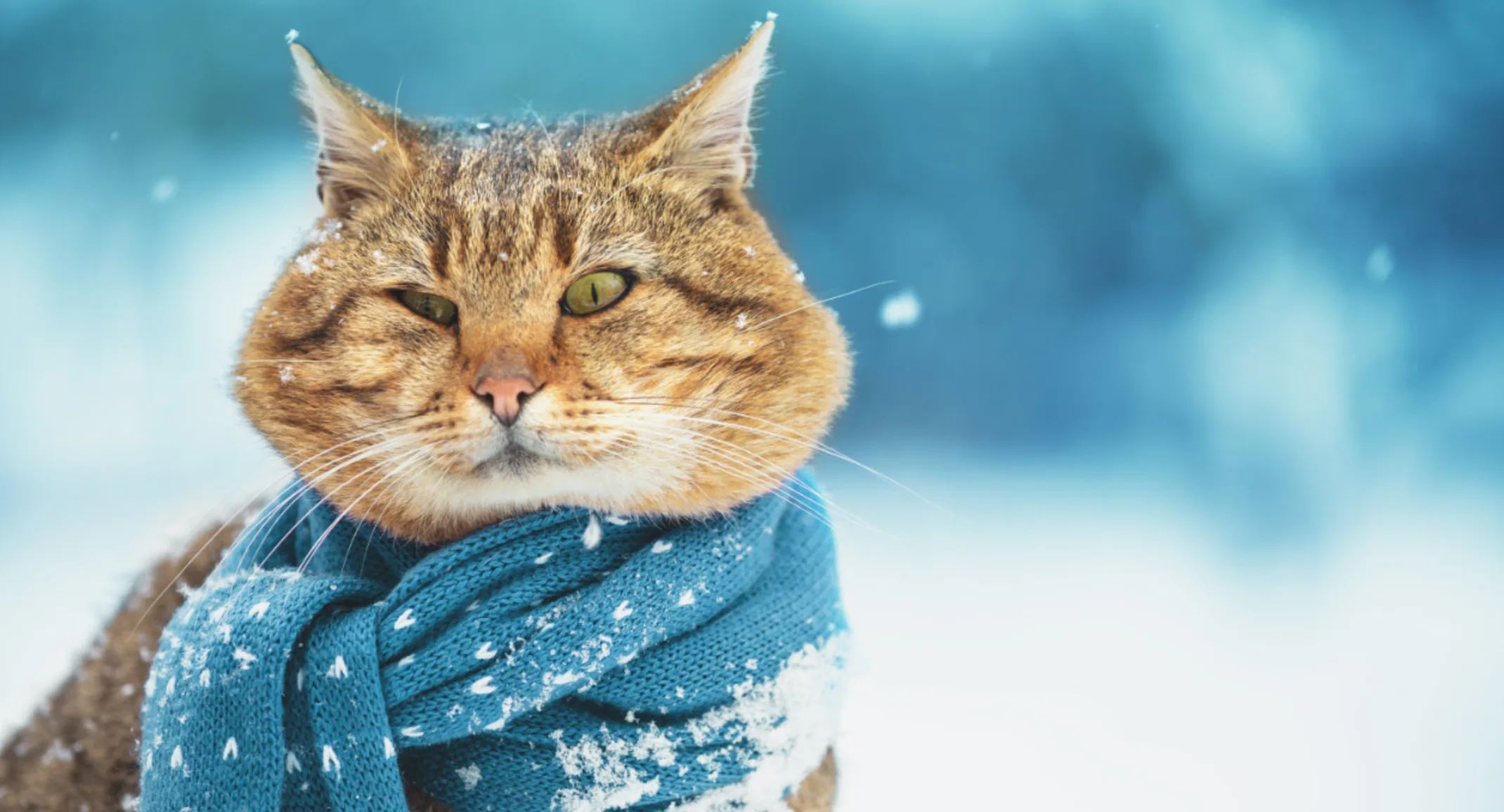Holiday Hazards for Pets in the Okanagan
Pet Safety

To help keep your companion safe this season, here are some of the most common winter and holiday hazards seen by our emergency veterinary team.
Cold Weather Risks
Even though winters in Kelowna can be milder than other parts of Canada, cold snaps still pose serious risks to dogs and cats.
Frostbite & Hypothermia
Pets can develop frostbite on their ears, paws, and tail, and prolonged exposure can lead to hypothermia.
Tip: Limit outdoor time during extreme cold and use pet-safe jackets or boots when possible.
Antifreeze (Ethylene Glycol)
Antifreeze is highly toxic, even in tiny amounts. Leaks in driveways, garages, or parking lots are common sources.
Tip: Store antifreeze securely and wipe up spills immediately.
Salt & Ice Melt
Paw irritation, chemical burns, and stomach upset can occur if pets lick their paws after exposure.
Tip: Wipe paws after every walk and consider pet-safe booties.
Frozen Lakes & Ponds
The Okanagan’s winter freeze-thaw cycles can create unpredictable ice thickness.
Tip: Keep pets leashed near lakes, ponds, or creeks.
Holiday Decor & Household Hazards
Festive decorations can be irresistible—and sometimes dangerous.
Tinsel, Ribbon & String
These can cause intestinal blockages if swallowed.
Ornaments & Hooks
Glass ornaments can shatter, causing paw injuries or dangerous ingestion.
Electrical Cords
Chewing holiday lights or loose cords can lead to burns or electric shock.
Tip:
Skip tinsel and use non-breakable ornaments
Place fragile items high on the tree
Secure cords and unplug lights when not in use
Food, Treats & Toxic Plants
Holiday gatherings often mean tempting but dangerous snacks within reach.
Toxic Foods
Chocolate (darker = more toxic)
Xylitol (in sugar-free candy, gum, baking)
Fatty foods & bones (can cause pancreatitis)
Grapes & raisins (can cause kidney failure)
Alcohol (dangerous even in small amounts)
Tip: Keep human foods off accessible surfaces and ask guests not to share table scraps.
Toxic Holiday Plants
Poinsettias: Mild GI and oral irritation
Mistletoe & Holly: Vomiting, diarrhea, or heart issues
Lilies: Extremely toxic to cats (even a small amount can cause kidney failure)
Christmas Trees (pine, fir, spruce): Needles can irritate or puncture the digestive tract
Tip: Keep plants out of reach and sweep up fallen needles frequently.
Wildlife & Outdoor Hazards in the Okanagan
Kelowna’s wildlife remains active through winter, creating seasonal risks for pets.
Coyotes
More visible in winter and a risk for small dogs and outdoor cats.
Porcupines
Common throughout the Okanagan, quill injuries are a frequent emergency visit.
Rodenticides
During colder months, rodent control increases, leading to accidental pet poisonings.
Frozen or Decaying Wildlife
Pets may ingest harmful substances on winter hikes, including dead fish or wildlife remains.
Tip: Keep pets leashed on trails, especially at dawn and dusk.
When in Doubt, Call Us
A trip to the emergency vet is never planned, but our compassionate team is here for you around the clock.
If you're unsure whether your companion needs urgent care, call Fairfield Animal Hospital at (250) 860-6550 and we will guide you on the next steps.
From all of us at Fairfield Animal Hospital, we wish your family a safe and happy holiday season.
Please note: Our emergency room operates on a triage-based system. Patients with the most critical needs will be seen first, and wait times may vary.
